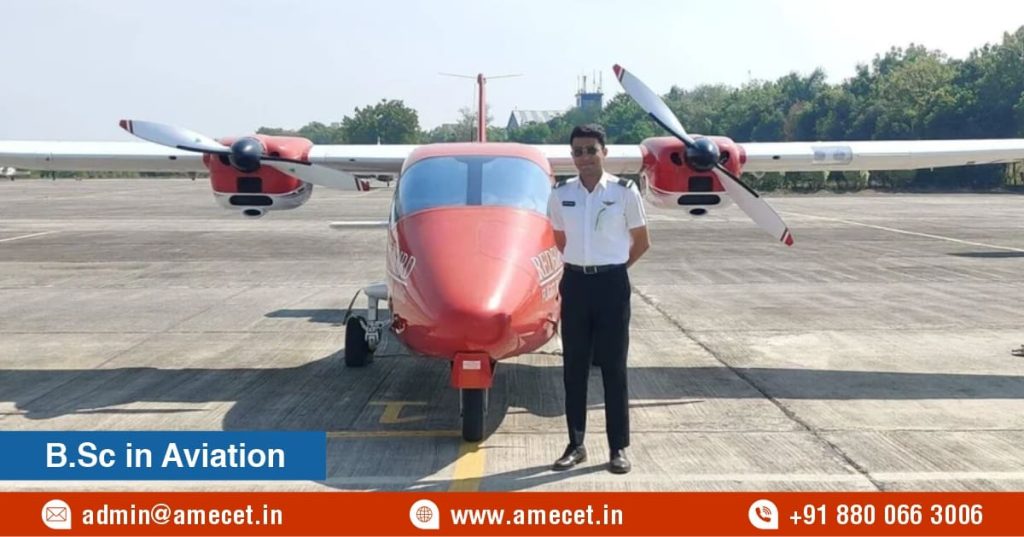A B.Sc. in Aviation equips students with a diverse skill set essential for success in the aviation industry. Graduates develop strong technical skills in areas such as aircraft operations, navigation, and maintenance. They also gain expertise in aviation safety regulations, airport management, and airline operations. Critical thinking and problem-solving abilities are honed through hands-on training and real-world scenarios. Additionally, students enhance their communication, teamwork, and leadership skills, preparing them for various roles within the dynamic and fast-paced aviation sector.
Technical Skills Acquired
A B.Sc. in Aviation provides students with essential technical skills that are critical for aviation professionals. These include expertise in aircraft operations, flight planning, and navigation systems. Students also gain knowledge in aircraft maintenance, avionics, and safety protocols. Hands-on training ensures proficiency in using aviation tools and technology, preparing graduates to handle complex technical tasks in the aviation industry with confidence and precision.
Points:
- Aircraft Operations: Understanding of how aircraft systems function.
- Flight Planning: Skills in preparing and managing flight plans.
- Navigation Systems: Proficiency in using modern navigation tools.
- Aircraft Maintenance: Knowledge of maintaining and repairing aircraft.
- Avionics: Expertise in aircraft electronic systems.
- Safety Protocols: Adherence to aviation safety standards.
- Technical Troubleshooting: Ability to diagnose and fix technical issues.
- Use of Aviation Tools: Hands-on experience with specialized aviation equipment.
Aviation Safety Expertise
A B.Sc. in Aviation equips students with comprehensive knowledge of aviation safety, a critical aspect of the industry. Students learn about safety regulations, risk management, and emergency procedures. They gain skills in identifying potential hazards and implementing safety protocols to ensure the protection of passengers, crew, and aircraft. This expertise prepares graduates to manage safety-related challenges and contribute to maintaining the highest standards in aviation operations.
Points:
- Safety Regulations: Understanding of national and international aviation laws.
- Risk Management: Skills in assessing and mitigating risks.
- Emergency Procedures: Proficiency in handling in-flight and ground emergencies.
- Hazard Identification: Ability to recognize and address potential dangers.
- Safety Protocols: Implementation of industry-standard safety practices.
- Incident Investigation: Knowledge of analyzing and responding to incidents.
- Crew Resource Management: Effective use of team resources to enhance safety.
- Continuous Safety Training: Commitment to ongoing safety education and updates.
Operational Management Skills
A B.Sc. in Aviation provides students with essential operational management skills needed to efficiently oversee aviation operations. These skills include managing airport logistics, coordinating airline schedules, and ensuring smooth day-to-day operations. Students also learn about resource allocation, personnel management, and crisis management. This training enables graduates to handle complex operational challenges, optimize processes, and maintain high standards in both airport and airline management.
Points:
- Airport Logistics: Efficient management of airport operations.
- Airline Scheduling: Coordination of flight schedules and crew assignments.
- Resource Allocation: Optimal use of resources in operations.
- Personnel Management: Effective supervision of aviation staff.
- Crisis Management: Handling emergencies and disruptions.
- Process Optimization: Streamlining operations for efficiency.
- Compliance Oversight: Ensuring adherence to aviation regulations.
- Customer Service Management: Maintaining high standards of passenger experience.
Problem-Solving Abilities
A B.Sc. in Aviation hones students’ problem-solving abilities, crucial for addressing complex challenges in the aviation industry. Students learn to analyze situations, identify root causes, and develop effective solutions. These skills are applied to technical issues, operational disruptions, and safety concerns. Graduates are equipped to make quick, informed decisions, ensuring smooth operations and maintaining safety and efficiency in a dynamic and high-pressure environment.
Points:
- Analytical Thinking: Breaking down complex problems into manageable parts.
- Root Cause Analysis: Identifying the underlying causes of issues.
- Creative Solutions: Developing innovative approaches to challenges.
- Decision-Making: Making informed decisions under pressure.
- Technical Troubleshooting: Resolving technical malfunctions effectively.
- Operational Continuity: Ensuring smooth operations despite disruptions.
- Safety Management: Addressing safety concerns swiftly and effectively.
- Collaborative Problem-Solving: Working with teams to find the best solutions.
Customer Service Skills
A B.Sc. in Aviation enhances students’ customer service skills, vital for ensuring a positive passenger experience. Students learn to communicate effectively, handle complaints, and manage customer interactions in various situations. They develop the ability to maintain professionalism, even under pressure, and prioritize passenger satisfaction. These skills are crucial for roles in airline operations, airport management, and other customer-facing positions in the aviation industry.
Points:
- Effective Communication: Clear and concise interaction with passengers.
- Complaint Handling: Resolving issues and concerns promptly.
- Professionalism: Maintaining a courteous and respectful demeanor.
- Conflict Resolution: Managing disputes and difficult situations.
- Empathy: Understanding and addressing passenger needs.
- Cultural Sensitivity: Respecting diverse backgrounds and preferences.
- Problem-Solving: Finding quick solutions to customer issues.
- Service Excellence: Ensuring high standards of passenger satisfaction.
In conclusion, a B.Sc. in Aviation provides a comprehensive education that equips students with a wide range of skills essential for success in the aviation industry. From technical expertise and safety knowledge to operational management and customer service skills, graduates are well-prepared to handle the challenges of various roles within aviation. The program emphasizes problem-solving, critical thinking, and effective communication, ensuring that students are ready to contribute positively to the dynamic and fast-paced aviation sector. With these skills, graduates can pursue rewarding careers and make a significant impact in the field of aviation.

